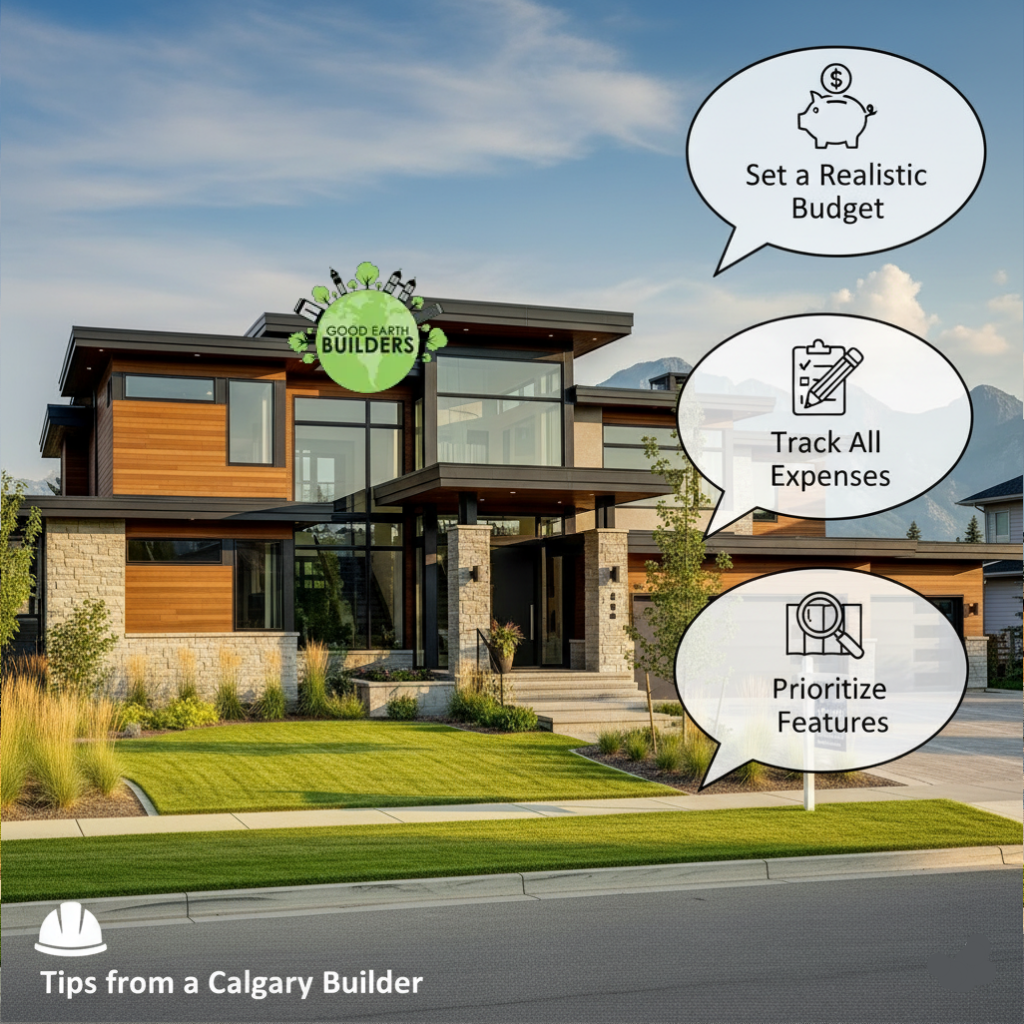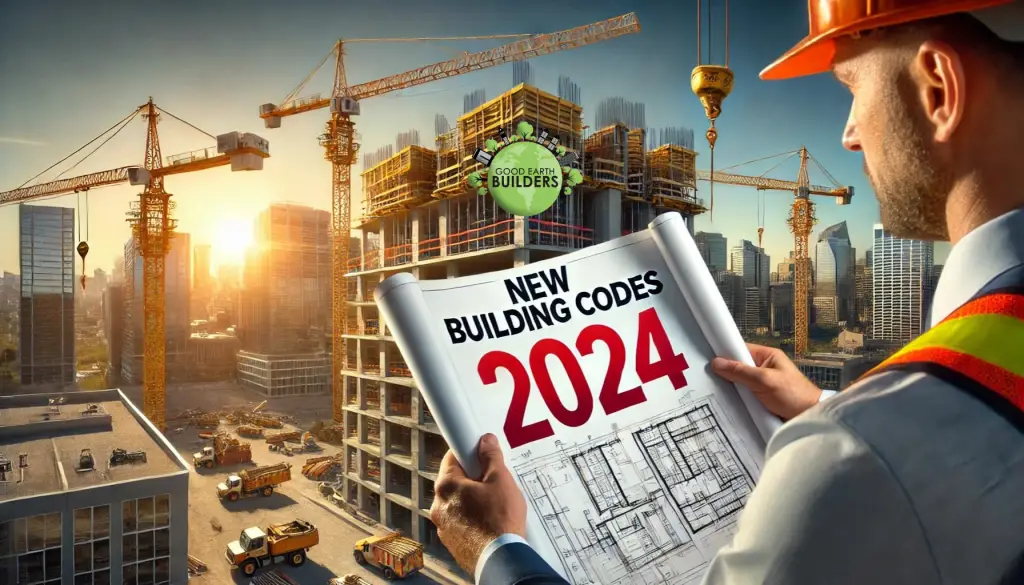Friday, September 19, 2025
The decision to build a custom home is one of the most significant and rewarding journeys you can embark on. It’s an opportunity to create a living space that is a perfect reflection of your personal taste, needs, and lifestyle. While the creative freedom is immense, the financial aspect can feel daunting. The question “how do I budget for a custom home?” is one we hear every day, and it’s often accompanied by a fear of hidden costs and unexpected overruns.
This guide is designed to be the definitive resource for anyone considering building a custom home in Calgary. We will delve into every detail of the budgeting process, going beyond the basics to explore advanced strategies, common pitfalls, and the expert knowledge required to build a home that is both beautiful and financially sound. We believe that with the right information, a budget is not a limitation but a powerful tool that empowers you to take control and ensure your dream home becomes a stress-free reality.
Part 1: The Pre-Construction Financial Blueprint
Before you can even begin to think about floor plans and fixtures, you must lay a concrete financial foundation. This is where you establish the rules of your financial game.
1. Secure Your Financing First: A Non-Negotiable Step The very first step is to secure a pre-approval for a mortgage. This is not a suggestion; it’s a mandatory step that gives you a clear and non-negotiable budget. A pre-approval tells you precisely how much a lender is willing to give you, allowing you to set a realistic budget for your land, construction, and all associated costs. Without it, you are simply planning without a financial map. A lender’s pre-approval also signals to builders and land sellers that you are a serious and credible buyer.
2. The 3-Bucket Budget Framework To simplify the process, think of your total budget in three main buckets:
- Bucket 1: The Land. This is the cost of the property itself.
- Bucket 2: The Soft Costs. This includes everything but the construction itself: permits, design fees, legal fees, taxes, and other professional services.
- Bucket 3: The Hard Costs. This is the actual construction cost: labor, materials, and subcontracted services.
By breaking your budget down this way, you can easily see where your money is going and ensure you haven’t forgotten any crucial components.
Part 2: A Deep Dive into the Costs of Building
The construction of your home is the largest piece of your budget, and understanding its components is key to controlling costs.
1. The Cost of the Land The cost of your land is a significant variable, and it’s not just the purchase price.
- Vacant Lot: A vacant lot is a blank canvas, but you must account for the cost of utility connections and potential site preparation.
- Teardown: A teardown is a popular option in Calgary’s inner-city communities. In addition to the purchase price of the property, you must factor in demolition costs, utility disconnect fees, and potential hazardous material removal, such as asbestos. These costs can easily add tens of thousands of dollars to your budget.
2. The Soft Costs: Often Overlooked, Never Forgotten These costs are not tied to the physical build but are essential for the project to proceed legally and professionally.
- Architectural & Design Fees: This covers the cost of turning your vision into a viable set of blueprints. A great design can save you money in the long run by being more efficient to build.
- Permits & Approvals: The City of Calgary requires several permits. These include a Development Permit (for land use), a Building Permit (for structural safety), and separate permits for electrical, plumbing, and mechanical work. These are mandatory and must be budgeted for.
- Legal Fees: For land purchase and review of your building contract.
- Appraisal & Survey Fees: Your lender will require an appraisal to ensure the home’s value matches the loan amount. You’ll also need a survey to define your property boundaries.
3. The Hard Costs: A Phase-by-Phase Breakdown This is the core of your budget. Your builder will provide a detailed quote that covers:
- Foundations & Framing: This includes excavation, pouring concrete, and building the “skeleton” of your home with lumber. A good builder will give you a clear quote for these materials and discuss how they manage price fluctuations in the market.
- The Building Envelope (Exterior): This phase makes your home weather-tight. It includes the cost of the roof, siding, windows, and doors. The choice of materials here has a massive impact on both cost and long-term energy efficiency.
- Mechanical Rough-ins: This is when all the “behind-the-walls” components are installed. This includes plumbing pipes, electrical wiring, and HVAC ductwork. The number of bathrooms, the type of furnace, and the complexity of your lighting plan will all affect this cost.
- Insulation & Drywall: Insulating your home is a critical step for energy efficiency. The cost is based on the type of insulation you choose (e.g., spray foam vs. batt insulation) and the size of your home.
- Interior Finishing: This is where the magic happens and where many budgets get out of control. This includes:
- Flooring: From luxury vinyl plank to engineered hardwood, your choice will have a huge price difference.
- Cabinetry & Countertops: Custom cabinets and high-end stone countertops are a major expense.
- Trim & Millwork: The cost of baseboards, crown molding, and interior doors.
- Fixtures & Appliances: Sinks, faucets, light fixtures, and all your kitchen appliances.
Part 3: Advanced Budgeting Strategies and Cost-Saving Tips
Once you have the basics down, you can use these expert strategies to save money without sacrificing quality.
1. The Tender Process: Getting a Competitive Price After your blueprints are complete, your builder can issue a “tender” to various subcontractors (e.g., plumbers, electricians, roofers). The tender is a formal request for a quote, which allows the builder to get competitive pricing for all the different trades on your project. This process ensures you are getting the best value for your money.
2. The Simpler, The Cheaper In architecture, complex shapes cost more. A simple, rectangular home is significantly more cost-effective to build than a home with multiple angles, large cantilevers, or complex roof lines. Choosing a straightforward home shape can save you tens of thousands of dollars on labor and materials.
3. The “Standard vs. Custom” Debate When selecting materials and finishes, ask yourself if you truly need “custom.” A semi-custom cabinet from a local supplier might be just as beautiful and durable as a fully custom one, but at a fraction of the cost. The same goes for fixtures and appliances. A good builder can help you find high-quality, non-custom products that look and feel luxurious.
Part 4: The Golden Rule: Your Non-Negotiable Contingency Fund
A contingency fund is not an “if-and-when” fund; it is a mandatory part of your budget. It is a dedicated amount of money set aside to cover unexpected costs that can arise during construction.
How Much to Budget: A professional builder will advise you to set aside 10% to 15% of your total construction budget for a contingency fund. For a $600,000 build, that’s $60,000 to $90,000.
Why It’s Critical: Unexpected issues can arise at any stage of the build. You might discover an unforeseen rocky ground during excavation, a sudden increase in lumber prices, or a change you decide to make halfway through the build. A contingency fund gives you the financial buffer to handle these issues without going into debt or having to compromise on the quality of your home. It’s the single best way to ensure your project stays on track and on budget.
Part 5: How a Builder Protects Your Budget and Your Peace of Mind
The most important decision you will make in this entire process is who you choose to build your home. A professional, experienced builder does more than just construct your house; they are your partner in managing the budget.
1. Transparent, Itemized Quoting: A reputable builder provides a clear, detailed, and transparent quote. Every line item is listed, so you know exactly where your money is going. There should be no “lump sum” or ambiguous charges. 2. Expertise in Value Engineering: A good builder is not just a project manager; they are a financial consultant. They can suggest alternative materials or construction methods that save you money without compromising quality. 3. Proactive Problem-Solving: An experienced builder has encountered nearly every problem imaginable. They can spot potential issues with a lot or a design before they become costly problems, helping you avoid budget overruns from the start. 4. Managing Change Orders: Even with the best plans, you may want to make a change during the build. Your builder will have a clear process for handling “change orders,” providing you with a detailed quote for the change and getting your approval before moving forward, ensuring you remain in control of your budget. 5. Warranties and Long-Term Value: A good builder stands behind their work. They will offer a comprehensive home builder warranty, protecting you from future issues. They understand that a high-quality build increases your home’s long-term value and protects your investment.
Good Earth Builders: Your Trusted Partner in Calgary Custom Homes
At Good Earth Builders, we believe that a custom home should be a dream, not a source of financial stress. Our proven process is built on a foundation of transparency, meticulous planning, and unwavering commitment to our clients’ budgets. We have extensive experience in the Calgary market, giving us a deep understanding of local building costs, regulations, and the unique challenges of every project.
Our team works with you from the very first consultation to create a detailed, itemized budget that accounts for every single cost, including a healthy contingency fund. We use our expertise to guide you through material selections and design choices that meet your vision and your financial goals. We manage every step of the process, from securing permits to overseeing subcontractors, ensuring your project is completed on time and on budget. Our mission is to build more than just a house; it’s to build a relationship based on trust and a home that brings you joy for years to come.
Conclusion: Start Your Budgeting Journey Today
Building a custom home in Calgary is an incredible opportunity. By taking a proactive approach to your budget and choosing a builder who values transparency and expertise, you can transform the daunting task of budgeting into a powerful tool for success. A well-planned budget protects your investment, gives you peace of mind, and allows you to focus on the joy of creating a home that is truly yours.If you are ready to begin this exciting journey,
📞Contact Good Earth Builders today for a no-obligation consultation. We are here to answer your questions, provide a clear budget roadmap, and partner with you to turn your dream home into a beautiful, tangible reality.




